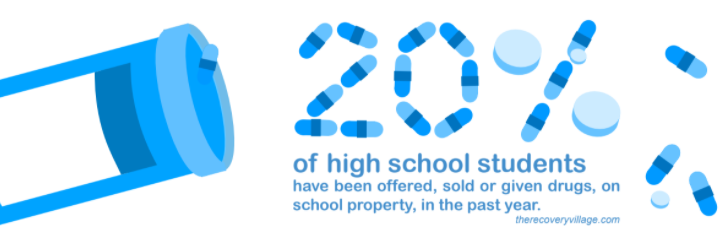Recovering addicts attend rehab remotely amid COVID restrictions
BLOT GRAPHIC BY KARA PETROSINO
Due to COVID-19 concerns, virtual addiction therapy has risen in popularity.
January 19, 2021
The increased potency of drugs in recent years has entailed an expanding need for standard addiction help programs, however, the continuation of the COVID-19 pandemic has made certain adaptations inevitable.
Virtual addiction therapy has become quite popular as it is an accessible resource for 90% of the US population, according to Coalition Recovery.
These systems operate similarly to an in-person program, incorporating individual, group and family therapy sessions through a screen. Much like a physical psychiatrist, virtual doctors are qualified to diagnose a patient’s condition and prescribe proper medication.
Due to distance and unsanitary conditions, difficulties may arise pertaining to the shipment of this medication. Unfortunately, keeping the virus in mind, this process is often the most convenient option.
Nancy Kolodchak, a former physician’s assistant, believes that though virtual help is an easier form of an in-person program, it may not accurately measure the depth of a specific person’s situation.
However, sources suggest that online addiction help may be the future of drug recovery and treatment. According to Psychology Today, only 10-12% of addicts seek in-person help for their addictions. Facilities often demand that potential patients abstain from consuming substances before treatments can begin, a task that proves difficult for many struggling addicts.
Numerous online treatments are available to everyone using technology and disregard this requirement, appealing to those with stronger dependencies on addictive substances. The chance to recover from addiction in a casual, inclusive environment is something that draws an increasing portion of the population to virtual therapy, an outlet for the struggling even in darker times.
Nancy Kolodchak is the author’s mother.




